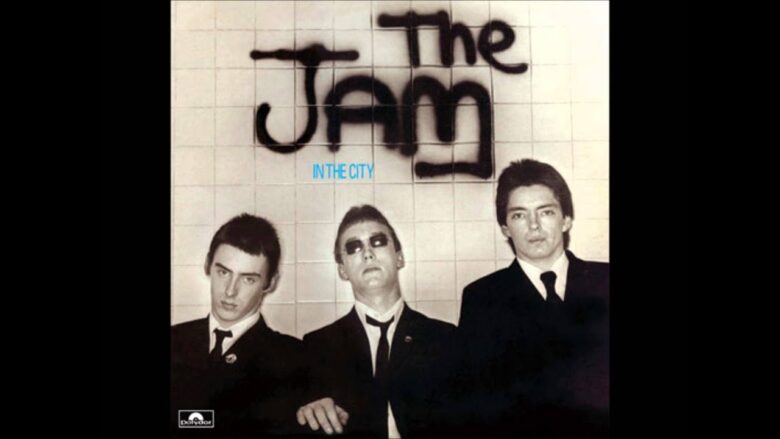Jiminy. Just minutes after referencing the anniversary of Devo drummer Bob Casale’s passing in a Facebook post, I’m hit by the news of Rick Buckler‘s death. The Jam’s legendary drummer passed away at home in England on Feb. 18 after a short, undisclosed illness. Buckler, along with the band’s bassist Bruce Foxton, comprised one of …
Q: In your estimation, did The Jam or The Style Council or any Paul Weller enterprise produce a great album? A: Near-great, perhaps, if one is especially disposed toward the decidedly Brit-centric, Who/Kinks/Small Faces-derived pleasures of the Jam albums IN THE CITY (1977), ALL MOD CONS (1979), or SETTING SONS (1980), although the narrow, immediately-anachronistic …
I appreciate it that older rock dudes want to keep the dream alive, but when I see the “Paul Weller hair” on a chunky dad I wince. – John Roderick [John Roderick will be performing with friends at the Showbox in Seattle on Oct. 29. Follow him as he tweets his wisdom @johnroderick.]
When Style Council came out with its first record, Bruce, the biggest Jam fan I knew, shook his head sadly. He may never have uttered the word, but hanging over his head was an acid green thought bubble containing the word, “sellout.” Bruce had a Mosaic sense of pop ethics, and when he came down …
The Jam’s brief, but incredibly influential career was not entirely spent recording fiery, anti-establishment fusillades. Tracks such as “Ghosts,” “English Rose” and the classic “That’s Entertainment” proved the band could produce more “pop” and less “power” — and still stir emotions some three decades later. My favorite among such songs is “Liza Radley,” the b-side …
The answer to the riddle of “why didn’t Britain’s most popular band make much of a dent here in the States?” has been debated forever. The truth is, there are a number of reasons why The Jam wasn’t huge here, why even the most savvy of radio listeners barely heard from them until all their …
I probably wasn’t the only suburban American youth who wished, at age 16 in 1984, that he was a handful of years older — and living in England. Los Angeles came in second on the desired locales list, but even at that tender age, my gut told me that the enormity, social disconnect and relative …
Among the dozens and dozens of Paul Weller-penned jewels, “The Butterfly Collector” has always been of the most intriguing, most fascinating songs to digest and ponder. I’ve always felt it was about disdain for an aging groupie living vicariously through a never-ending succession of “butterflies” in her collection. Rumour has it that I’ve been correct …
In the late 1970s and early 80s, Jam proved that you could be really pissed off AND carry a tune, at the same time. Paul Weller’s trio had legitimate reasons for their anger: massive unemployment, a recession, a conflict in Northern Ireland, a government long out of touch with the working class — and with …
The Jam had Paul Weller, of course, but they also had a great rhythm section, and even on a ballad like this, the bass and drums complete the sonic picture:

